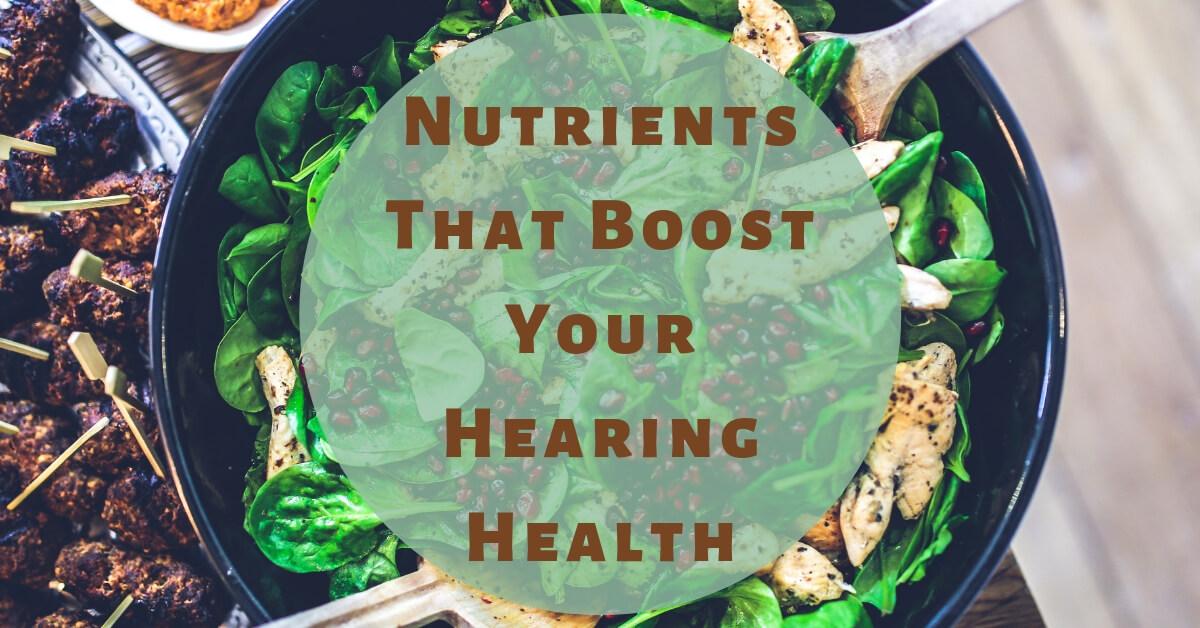
- Hearing Aids Can Improve Your Quality of Life - July 22, 2019
- Comorbidities of Hearing Loss - July 10, 2019
- Q&A About Hearing Loss - June 26, 2019
Hearing is one of those things you take for granted, until it begins to change. Hearing loss occurs gradually, so often times people do not notice right away. However, if you’ve stopped to think “Why can’t I hear the birds anymore? And, did the refrigerator cycle like it was supposed to? There must be something wrong with the television, I have to keep turning up the volume!” – then you may have a hearing loss!
To stay on the proper course of good hearing health, consider regular evaluations at Beverly Hills Hearing Center. Regular evaluations mean we can make sure if there is a change in your hearing, we can recommend the best course of treatment as soon as possible.
In addition to regulating your exposure to noise and monitoring your hearing abilities, studies have shown that there are nutrients to help maintain your hearing, and as an added bonus, keep you generally in better health.
Folate
Folate, also known as vitamin B-9, has been linked to hearing health since the early 90s. A 1999 study published in the American Journal of Clinical Nutrition found that elderly women suffering from hearing loss had 43% less folate levels than women with normal hearing. And, a 2003 study showed folate levels were lower in patients with age-related hearing loss than in those with no hearing loss. A 2004 study examined males with age-related hearing loss and discovered those with hearing difficulties had very low levels of serum folate.
Foods naturally containing B-9 include spinach, asparagus, beans, broccoli, eggs, liver and nuts.
Vitamin B12
Research linking low B-9 levels to hearing loss also found low levels of B-12 seemed to contribute to hearing loss. The theory is that both folate and B12 deficiencies cause homocysteine levels in the body to rise and this, in turn, restricts blood flow including to the cochlea. The cochlea in the inner ear converts sound vibrations into electrical signals which are processed by the brain. B12 is naturally present in meat, fish, eggs, milk and dairy products.
Foods that provide B12 also provide Vitamin D which is helpful for hearing health. Sunshine is the best source of Vitamin D, but mackerel, tuna fish, egg yolks and cheese – especially swiss cheese – are high in Vitamin D.
Omega-3 Fatty Acids
Omega-3 is very important for healthy hearing as well as general health and many Americans don’t get enough of this essential component in their daily diets. A 2010 study published in the American Journal of Clinical Nutrition found that study participants who had at least two servings each week of cold-water fish which are traditionally high in Omega-3s, had a 42% lower risk of having age-related hearing loss.
In addition to cold-water fish, other foods high in Omega-3 fatty acids include pastured eggs, flaxseed, walnuts and grass-fed beef and lamb. Salmon and sardines are very high in Omega-3s.
Vitamins A and E
These vitamins came to the attention of the public with a 2011 study that examined the link between dietary and supplemental intakes of antioxidants and a propensity for hearing loss. Researchers measured the benefits of antioxidants over five years and found Vitamins A and E were the most beneficial for hearing health. Individuals with the highest intake of Vitamin A reduced their risk of hearing loss by 47% and those who ate Vitamin E enriched foods lowered their risk of hearing loss by 14%.
Food high in Vitamin E include almonds, spinach, sweet potatoes, avocados, sunflower seeds, butternut squash, Swiss chard, turnip greens and olive oil. Foods rich in Vitamin A include beef liver, carrots, sweet potatoes, kale, spinach, broccoli, eggs and butter from grass-fed beef.
Vitamin C
Vitamin C is a water-soluble antioxidant that works with glutathione and other cellular antioxidants to absorb antioxidants that absorb helpful free radicals. A higher intake of Vitamin C helps protect the brainstem from damage due to excessive noise. Vitamin C can improve the symptoms of sudden sensorineural hearing loss by reducing oxygen metabolites that are produced in the inner ear.
You can take supplements to increase your Vitamin C, but it occurs naturally in citrus fruits, papaya, strawberries, bell peppers, broccoli, brussels sprouts and dark leafy greens.
Don’t Forget to Get That Hearing Check
Start out your hearing health regime with an evaluation by the professionals at Beverly Hills Hearing Center. We’ve got the experience to make sure you get a comprehensive hearing test and if a loss is detected, our team will help you find the best treatment options for your hearing needs.
